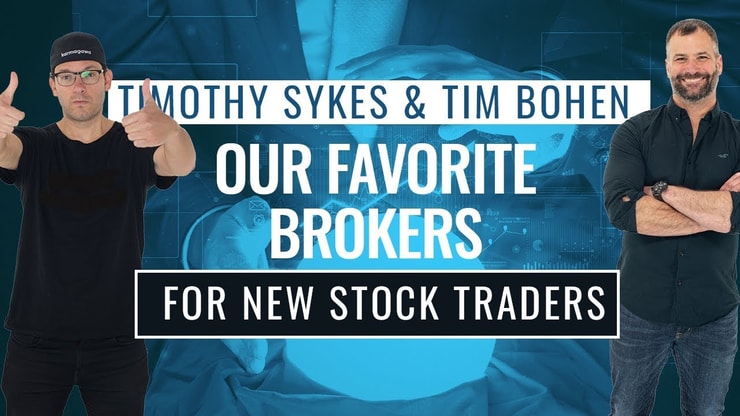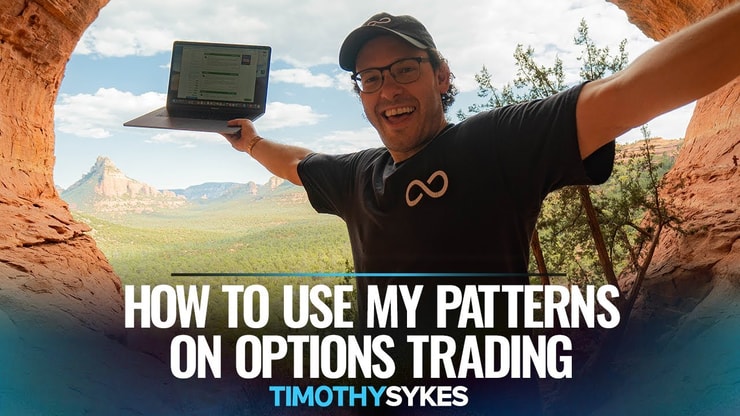Learning how to trade options on Fidelity is easier than on many other brokers, thanks to its user-friendly interface and ample educational resources.
Fidelity Investments is a large financial services company with numerous offerings. It has online, mobile, and desktop trading platforms.
Fees-wise, it’s very competitive. There are no minimum deposits and very few fees.
Different brokers cater to different kinds of traders. There are no 100% good or bad online brokerages, just the ones that work for you… and the ones that don’t.
Is Fidelity the right broker for YOU to trade options on? Let’s look into what it offers to help you make the right decision.
Table of Contents
Trading on Fidelity

2025 Millionaire Media, LLCFidelity is a well-rounded online brokerage fit for new and experienced traders. It also has other offerings like retirement funds and cash management services.
Here are some prominent features you’ll find on Fidelity:
- No minimum deposits or account fees
- Commission-free trading
- Various tradable securities
- Two trading platforms
- Third-party stock research services
- 24/7 phone and online customer service
- 200 nationwide branches for in-person support
Want to know about other good brokers for options trading? Check out my reviews of Webull, Interactive Brokers, and Questrade.
Benefits of Trading Options Using Fidelity
What can you get by being a Fidelity Brokerage Services LLC user? Here are several key benefits when you trade options on Fidelity:
Multiple Trading Platforms
Fidelity offers two trading platforms for its users: Fidelity Investments and Active Trader Pro. The former is available on the web and in a mobile app, while the latter is its desktop power platform. Both boast advanced screeners and trading tools.
Active Trader Pro offers more features for advanced traders. It’s highly customizable. It also gives you robust technical analysis and advanced options tools. These tools help you make informed decisions for trading options.
If you’re in the market for a power trading platform, try StocksToTrade. It’s my favorite trading platform (and the one I helped design).
Give StocksToTrade a try today — a 14-day trial is only $7!
Numerous Tradable Assets
Fidelity has a wide selection of tradable securities. Its offerings include:
- Stocks
- Bonds
- Exchange-traded funds
- Mutual funds
- Options contracts
- Foreign currencies
- Select cryptocurrencies
Fidelity also offers fractional share trading. Fractional shares are portions of a high-cost stock sold at lower prices.
We’re here for options contracts. But knowing what other assets a broker offers is never a bad idea. This will give you space to try different strategies without your broker standing in the way.
More Breaking News
- BIT Mining Stock Skyrockets: Should You Jump In?
- LM Funding America Sees Bitcoin Surge and Tactical Energy Shift
- Dare Bioscience Reflects on Grant Milestone
Customer Service and Branch Office Presence
You can contact Fidelity at any time. It offers 24/7 customer service with fast response times across phone, online chat, and email. As it’s a full-service broker, you can also do broker-assisted trades for a fee. Either way, they’ll help you with your questions about options trading.
Prefer in-person service? Fidelity has you covered. It operates over 200 branch offices nationwide.
Robust Educational Content
More trading education is always a good thing. Fidelity provides lots of educational content in articles, videos, and webinars. There’s a comprehensive options education section sourced from the Chicago Board of Options Exchange (CBOE).
Options Reports
Fidelity publishes a daily S&P Options Report. It reviews options performance and evaluates profit potential.
Lower Trading Costs
Fidelity has no commission fees or additional costs for most of its tradable assets. This means you won’t be charged fees on stock trades. There’s still a $0.65 contract fee for option trades, like there is for most other full-service brokerages.
Zero Minimum Deposit
Zero minimum deposits is already an industry standard. However this is deceptive in options trading.
Like other brokers, Fidelity imposes a minimum equity requirement for more advanced options strategies, as well as a margin account minimum of $2,000.
Steps to Start Trading Options on Fidelity

2025 Millionaire Media, LLCThinking about choosing Fidelity as your options broker? Here’s a step-by-step guide to trading options on Fidelity:
1. Open a Fidelity Account
The first thing to do is create a Fidelity account. Fidelity offers many account types, but the one you need to choose is its brokerage account.
2. Log in to the Fidelity App
Log into your Fidelity account through the website, mobile app, or Active Trader Pro.
Once in, fund your account. There are no minimums to start trading.
3. Select Options on the App
You need approval before trading options on Fidelity. Choose the Options menu and press the Apply to trade options button. You’ll be presented with an application.
The options application form assesses your financial situation and trading experience, which Fidelity will review before giving you clearance. It might take a couple of days for your approval to come through.
Like other brokers, Fidelity offers multiple levels of options trading. The more experienced you are, the higher the options trading level you’ll qualify for.
4. Start Trading Options
Once you have an options agreement, you’re ready to trade! Go into the Trade drop-down and select Options as your transaction type. Then, choose your preferred stock and start trading.
The usual trading principles still apply:
- Study strategies from successful options traders
- Don’t copy other traders’ trades or their stock picks
- Make your own watchlists
- Record every trade for future review
Succeeding at options trading means studying hard and refining your strategy every day. A great teacher will help you build your knowledge base faster.
I don’t trade options — I leave it to pros like tech entrepreneur and trader Ben Sturgill. His smart-money webinars are the product of more than 2 decades of experience in the market and a unique technology, and they’re well worth checking out.
Check out the webinar here to see why Ben’s smart-money scanner has been going haywire lately!










Leave a reply